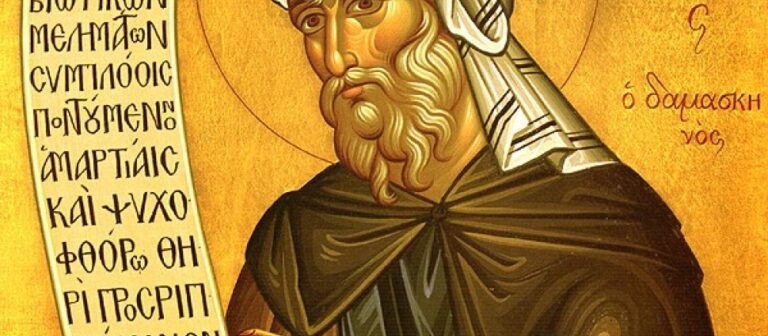
What Would Martin Luther King, Jr. Think of Black Lives Matter?
What would Martin Luther King, Jr. think of Black Lives Matter (BLM) and the violence it has spawned? What would he think of the death of Horace Lorenzo Anderson in CHOP?[1] What would he think about the shooting in Chicago that claimed the life of Mekhi James, a three year old boy?[2] What would he think of blacks and whites spewing hatred at a black police officer calmly holding a riot shield? What would he think of rioters hurling bricks and bottles? My question is apparently one that is well-worn.
On January 13, 1995 Eric Holder, the first African American to serve as U.S. Attorney for the District of Columbia, asked “what Martin Luther King, Jr. would think about the state of black America today.”[3] Holder answered the question saying, “I, for one, would be ashamed to reveal to him what we have let happen to our community.” During a visit to Alabama’s Birmingham jail Rev. Jesse Jackson had a similar message for the inmates.[4] And in November 1993 President Bill Clinton asked a similar question to the congregants of Mason Temple Church of God in Christ, in Memphis, Tennessee.[5] But what would Martin Luther King, Jr. think of BLM and the violence it has produced?
Interestingly, at least one civil rights activist of the 1960s, Barbara Reynolds is willing to align herself with the cause of BLM but fundamentally disagrees with their approach.[6] According to her, it is difficult to tell the difference between genuine protesters and looters and vandals. Reynolds wonders why BLM is not helping us distinguish between them. What would Martin Luther King, Jr. think of BLM?
In recent weeks we have watched the toppling of one statue after another. For many reasons, those actions are as sad as they are illegal. However, aside from deposing granite is the graffiti that has appeared in its wake. On the base of President Andrew Jackson’s once erect monument was written, “Kill Whiteys” and “All colonists must die.” Now, try to harmonize those words with these spoken by Martin Luther King, Jr. He said, “We will meet the forces of hate with the power of love….We must say to our white brothers all over the South, we will match your capacity to inflict suffering with our capacity to endure suffering…Bomb our homes and we will still love you…We will so appeal to your heart and conscience that we will win you in the process.”[7] The difference is palpable.
Now, what separates Martin Luther King, Jr. from the leaders of BLM who are happy to tell us that this is not the civil rights movement of your grandparents? Well, I want to suggest two things. First, perhaps it is simple maturity. I am not suggesting that King was perfect. He wasn’t anymore perfect than any of us.[8] Once when on his way home from a high school oratorical contest the bus driver made him relinquish his seat when white passengers boarded. King said, “I was determined to hate every white person.”[9] But King grew and the church had a great deal to do with that growth.[10]
Second, it is likely something more sinister. In 2015, one of the founders of BLM, Patrisse Cullors, said, “We actually do have an ideological frame….[we’re] trained organizers. We are trained Marxists. We are super versed on ideological theories.”[11] Though King was no fan of capitalism he was also no Marxist. In fact, King said that communism was the only serious rival to Christianity which is why he also said that the two are fundamentally incompatible.[12]
Perhaps the reason why BLM and the civil rights movement under Martin Luther King, Jr. are so different is because they have entirely different agendas. King operated “always from the surpassingly religious” while BLM operates out of a Marxist ideology and ne’er the twain shall meet. So, what would King think of BLM? Perhaps at the very least, not recognizing himself in them, he would wonder how things went so wrong.
Jeffrey A Stivason (Ph.D. Westminster Theological Seminary) is pastor of Grace Reformed Presbyterian Church in Gibsonia, PA. He is Professor-elect of New Testament Studies at the Reformed Presbyterian Theological Seminary in Pittsburgh, PA. Jeff is also an online instructor for Westminster Theological Seminary, Philadelphia, PA. He is the author of From Inscrutability to Concursus (P&R), he has contributed to The Jonathan Edwards Encyclopedia (Eerdmans) and has published academic articles and book reviews in various journals. Jeff is the Senior Editor of Place for Truth (placefortruth.org) an online magazine for the Alliance of Confessing Evangelicals.
[1] https://www.seattletimes.com/seattle-news/teen-who-died-in-chop-shooting-wanted-to-be-loved-those-who-knew-him-recall/
[2] https://www.chicagotribune.com/news/breaking/ct-chicago-violence-shootings-20200621-dysixivfqrdgtlffeu3kopi3xy-story.html
[3] James Forman, Jr. Locking Up Our Own: Crime and Punishment in Black America (NY: Farrar, Straus and Giroux, 2017), 195.
[4] Ibid.
[5] Ibid., 196.
[6] https://www.washingtonpost.com/posteverything/wp/2015/08/24/i-was-a-civil-rights-activist-in-the-1960s-but-its-hard-for-me-to-get-behind-black-lives-matter/
[7] Marshall Frady, Martin Luther King, Jr. (NY: Penguin, 2002), 5.
[8] Frady says that King had an “inclination to casual textual appropriation” and “extramarital amatory deporting.”
[9] Frady, 13.
[10] For the church’s influence in black culture see W. E. B Dubois’s The Souls of Black Folk p. 340-345 [in Three Negro Classics (NY: Avon, 1965)].
[11] https://disrn.com/news/video-surfaces-of-black-lives-matter-founder-saying-were-trained-marxists
[12] Cf. King’s Strength to Love.
























